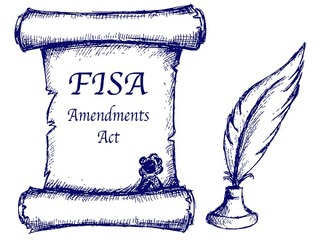Global AI in healthcare market expected to rise to $164B by 2030
The market size for 2023 was $10.31 billion
Read more...
As you might have expected, the PRISM scandal has had some serious legs. Almost a month after the first reports of the program came to light, the fallout is still being felt around the world.
The European Parliament has now voted overwhelmingly to begin investigating whether or not the NSA had been using the program for surveillance of European citizens, it was revealed Thursday. The vote was 483 in favor of the investigation, and only 98 against it.
The inquiry will be conducted by Parliament's Civil Liberties Committee, and will look into areas such as the bugging of EU premises and other spying allegations, the results of which will be presented at the end of the year.
In the meantime, Members of the European Parliament (MEPs) have already begun thinking about ways that the EU can gain some leverage in negotiations with the United States, including suspending the current air passenger and bank data deals.
That would mean that the EU would no longer share the Terrorist Finance Tracking Program (TFTP) and the Passenger Name Record (PNR), and could lead to the grounding of flights between the U.S. and Europe.
According to the MEPs, though, it would be worth it to make sure that countries around the world, including the U.S., recognized EU law.
"The European Union must reflect in actions the gravity and magnitude of the problem we are confronted with. It is time the Commission and the Council finally act upon our repeated requests to solve the conflict of jurisdiction. We can no longer tolerate that the US or any other country's law is applied directly on EU territory. EU citizens must be guaranteed protection under our own EU laws," Sophie in't Veld, a Dutch Member of the European Parliament, said in a statement.
"We need a new rigorous EU data protection regulation but without stronger national and international controls on snooping by the spooks and agreements on jurisdiction we are going to bake only half a loaf," said Sarah Ludford, a British Member of the European Parliament.
A big part of this investigation, and whatever measures the Parliament takes to prevent such surveillance in the future, also seems to be about protecting whistleblowers, such as Edward Snowden, who "unveil serious violations of fundamental rights." It is important, the MEPs said, that they are offered the protection they need, especially on the international stage.
"In a democratic state, whistleblowers breaking the law to expose illegal acts by governments should be protected by law against the wrath of governments. Democracies dispense justice, not revenge," said in't Veld.
With PRISM fresh on everyone's mind, Parliament is not only looking at what the United State is doing, but is also looking inward. The MEPs expressed concern over similar programs in some of its member countries, including the U.K., Sweden, The Netherlands, Germany and Poland.
Parliament has urged them to make sure that their programs do not violate EU law.
(Image source: https://www.ask.com)
The market size for 2023 was $10.31 billion
Read more...At Culture, Religion & Tech, take II in Miami on October 29, 2024
Read more...The company will use the funding to broaden the scope of its AI, including new administrative tasks
Read more...

